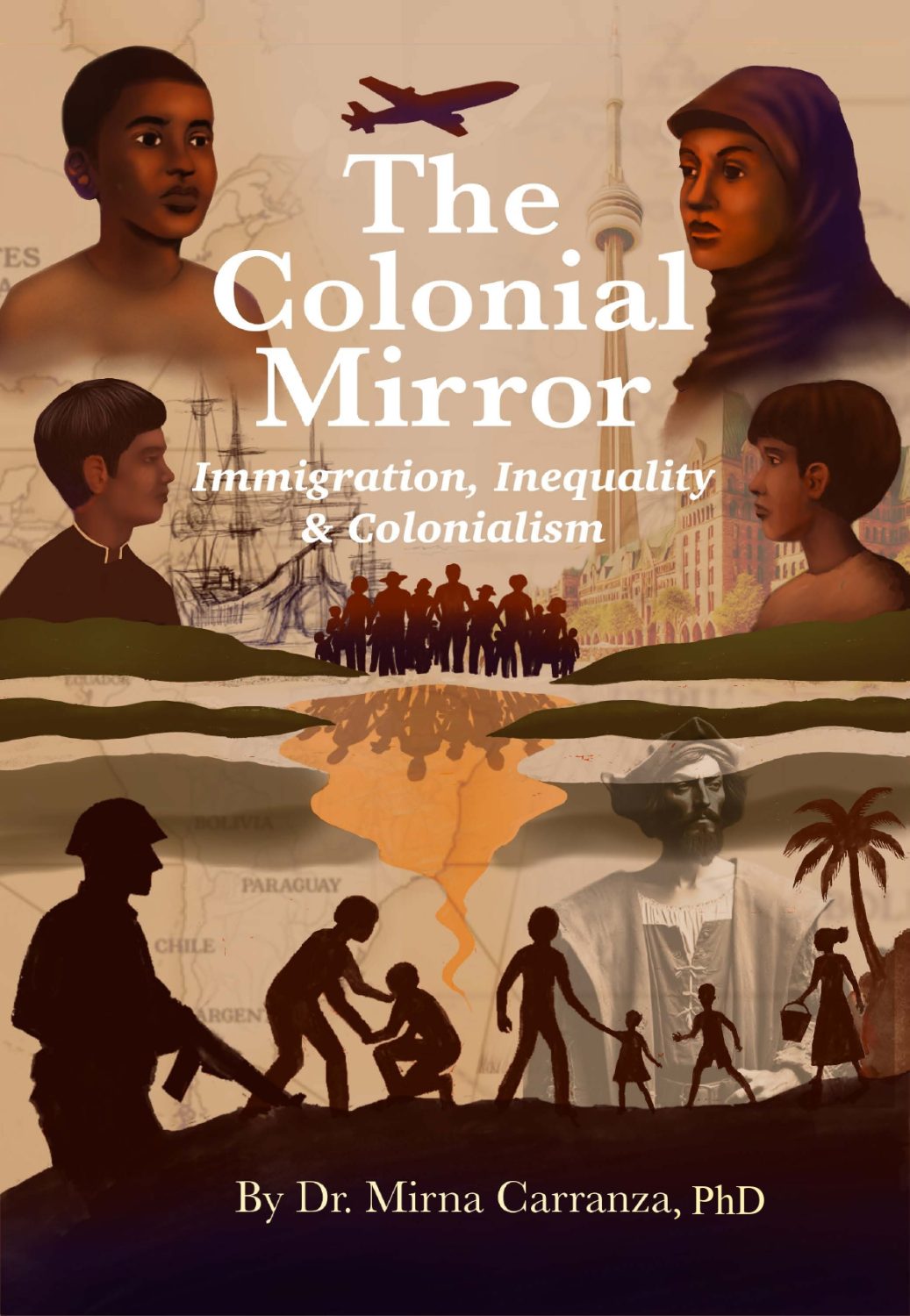Book Title: The Colonial Mirror: Immigration, Inequality & Colonialism

Book Description: This book explores the history of social work with newcomers through the lens of coloniality, which articulates what has been intentionally silenced, missed and how exclusion has been reproduced. This is especially pertinent to move towards the decolonization of education. Given Social work’s implication in the reproduction of the colonial encounter, the profession is in a unique position to shift its discourse and praxis. The social work relationships are predicated on the “knower” and the “known”, similar to the rescuer or hero narratives. In the past, therapeutic spaces have been visibly white and over time, this whiteness has been embedded in these relations- so as faces change, we can remain beholden to history. Agency and resiliency is not discussed, outside of the helper/helpee relationship, meaning that social work spaces often mirror colonial relations. The goal of this book is to understand how families, as a whole and the individual members, negotiate their placement on the Colonial Grid through resettlement in Canada. This is achieved by traversing through the history of social work and migration, to engage with the complicity of the profession of producing and reinforcing the Other. Of key importance is how Canadians, including social workers have been conditioned to understand immigration as “moving up”, “the search for a better life” and Canada as “provider and safe haven”, but most importantly the implication in fostering assimilation.
Contents
Book Information
Book Description
The Colonial Mirror offers a critical rethinking of how social work engages with newcomers to Canada, challenging the structural power relations and positivist models that have historically shaped the profession. Despite advancements in anti-oppressive, feminist, critical race, and queer theories, social work practice continues to be haunted by unresolved historical violence that cannot be addressed solely through cultural competency, sensitivity, humility, or even anti-oppressive frameworks. Drawing on decolonial thought, this book argues that to truly transform practice, social work must confront its deep entanglement with coloniality and the enduring superiority of settler knowledge that informs the social work encounter.
Through a theoretical lens grounded in the coloniality of migration and the Colonial Grid, the book examines how practice frameworks have evolved when working with racialized newcomers from previously colonized territories. It interrogates common narratives that depict migration as a voluntary search for a better life and Canada as a benevolent safe haven, revealing how these ideas obscure the historical and ongoing conditions of dispossession, exploitation, and racialized exclusion embedded in the nation-state.
The text provides an interrogation into multicultural policy and the liberal ideals of citizenship and belonging that have guided social work’s engagement with newcomers. It exposes how social work has been positioned as a political agent in shaping inclusion and exclusion, producing identities such as “refugee” and “forced migrant” while maintaining whiteness as the normative standard of belonging. The book also historicizes concepts of race, racialization, and acculturation, unpacking how ideologies of cultural competency and humility continue to operate within colonial logics, even when framed as progressive approaches.
Expanding the discussion to the family and community level, the book challenges Western conceptualizations of acculturation, introducing ways of understanding families that traverse borders and temporal realities. It reconceptualizes trauma as an ongoing, transnational experience rather than a discrete event resolved through arrival and safety in Canada. Through intersectional analyses of gender, masculinity, and women’s migration experiences, it illustrates how structural racism and colonial power shape social exclusion and the social work encounter itself.
The text further explores the mediating roles of religion, diaspora, and transnational connections in shaping newcomers’ experiences of “home” and belonging, and how these factors influence engagements with social work. By mapping how newcomers are marked as “Other” within the colonial grid, it reveals the ways therapeutic and community-based practices reproduce colonial conditioning, sustaining asymmetrical power relations between social workers and clients.
Turning to clinical practice, the book examines the figure of the therapist as “knower,” interrogating how race is animated in therapeutic relationships and how both therapists and clients navigate colonial identities. It critically engages with the concept of empowerment, reimagining it “from below” as a collaborative, justice-oriented practice rather than a top-down intervention. Through case studies and clinical insights, the book challenges assumptions about empowerment and demonstrates pathways toward more equitable, decolonial practice.
By foregrounding whiteness as the colonial difference that underpins social work’s knowledge base, the book highlights the challenges faced by both white and non-white practitioners. It explores the complexities of practicing on the margins within a profession structured by whiteness, offering case-based learning that illuminates the tensions and possibilities of working from marginalized standpoints.
Ultimately, this book provides an urgent call to decolonize social work practice with newcomers. It invites practitioners, educators, and scholars to critically interrogate the colonial foundations of their work and to imagine social work encounters that resist reproducing historical violence. Through its layered analyses and practical insights, it opens space for a transformative rethinking of power, and knowledge in social work with racialized newcomers.
License
The Colonial Mirror: Immigration, Inequality & Colonialism Copyright © 2024 by Dr. Mirna E. Carranza. All Rights Reserved.
Subject
Migration, immigration and emigration
